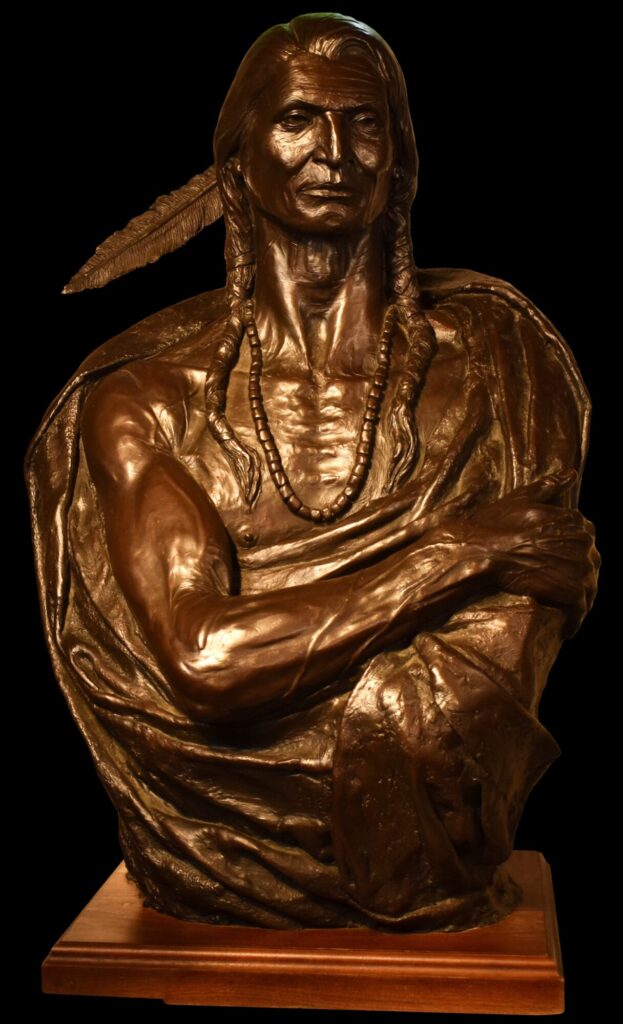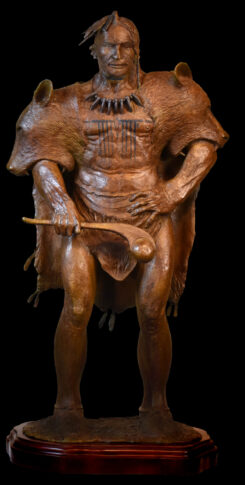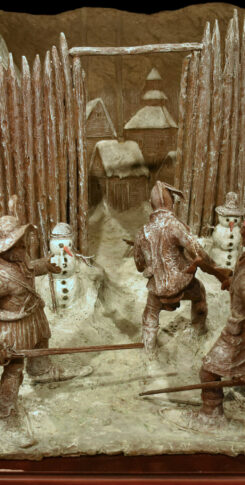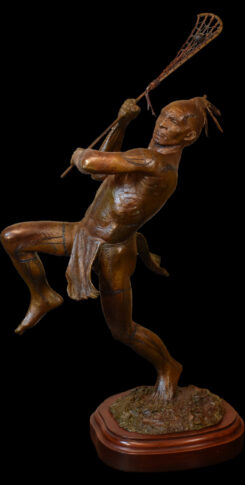Bronze edition: 9 | Height: 32″
“Metacomet”, son of Massasoit, who had welcomed the Pilgrims at the first Thanksgiving, lived to see his large territory dwindle in the face of the insatiable English appetite for land. Rather than submit to a humiliating subjugation he launched “King Philips War” (1675-1676). It was the last great resistance of New England Tribes and one of the major chapters in the history of the conquest of America. Ultimately Philip’s cause was doomed to failure: The Puritans forced to swallow their pride, had to rely heavily on Philips’ Indian enemies, primarily Uncas’ Mohegans, to locate the elusive foe. From the London Gazette of 1676: “The Indians (of Philip) being so light of foot that they can pass boggs, rocky mountains and dense thickets where we could by no means pursue them.”
The other factor which tilted the outcome of the war in the Puritans favor were the Mohawks. Philip had hoped to win this most war-like of tribes to his cause and had he succeeded it is more than likely that the outcome might have been very different. However the Mohawks were staunch allies of the English of New York and long were hostile to the Algonkians of New England. Their response to Philips’ overtures was unequivocal: The heads of Philips’ five ambassadors were sent back to him as answer. The Mohawks then proceeded to rout Philips’ forces from their sanctuaries in western New England back into the arms of the English. Philips’ fate was sealed.
In the early going however, Philip achieved a series of stunning successes which made the outcome far from certain. He united his own Wampanoags with the Nipmucks, Pocumtucks and Narragansetts in the south and west and together with the Pennacooks and Abenaki to the north, inflicted on the Puritans the highest casualty rate of any subsequent American war. Two dozen towns were partly or wholly destroyed so that it was twenty years before many areas of New England frontier were again re-occupied. Along with the cost in human life, the economy suffered greatly and per capita income in New England did not surpass 1675 levels until 1815. By April of 1676 after a string of unbroken victories culminating in the burning of Sudbury only twenty miles from Boston, “so insolent were the Indians grown at their success, that they sent word to provide store of good cheer, for they intended to dine with us upon the Election Day!” (May 3, 1676). The implication, of course, being that soon even Boston would be theirs.
“Tis admirable to consider how powerful are their Kings, and yet how they move by the breath of their people …”
“Tis admirable to consider how powerful are their Kings, and yet how they move by the breath of their people … I have never seen more natural sagacity … and he will deserve the name wise who is able to outwit them.”
William Penn (1681)





